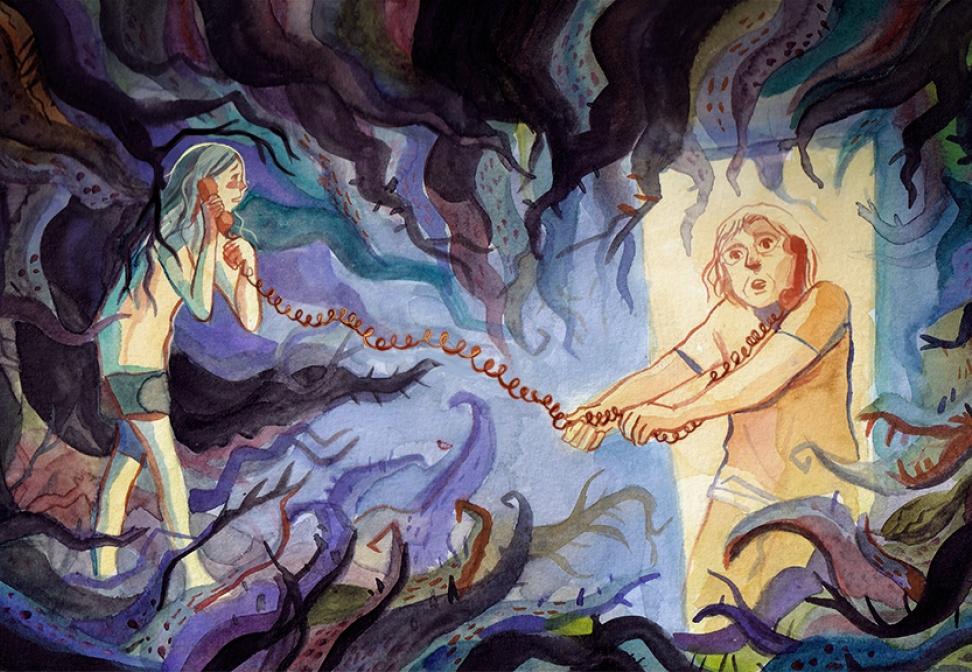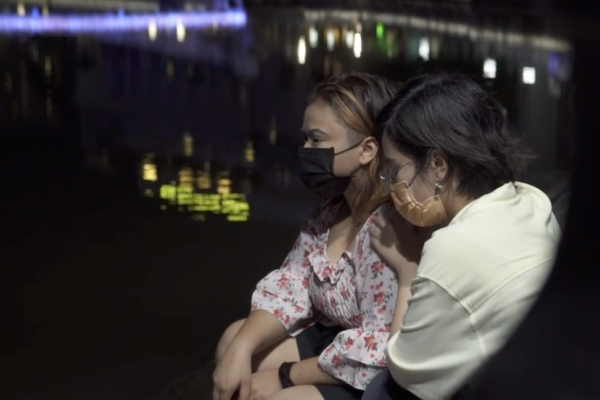What It’s Like to Volunteer for a Suicide Hotline
We go behind the scenes with a suicide hotline volunteer at Samaritans of Singapore (SOS), a non-profit organization in Singapore focused on providing support for people impacted by suicide.
On weekdays, May* (pseudonym), who is in her 60s, works as an admin manager. On weekends or after work hours, she volunteers at the hotline of Samaritans of Singapore (SOS) talking to people who are experiencing suicidal thoughts and ideation.
SOS’ band of volunteers operate under a mysterious shroud of secrecy. The first rule of being an SOS volunteer? You don’t talk about being an SOS volunteer.
The reason for such hush-hush operations is that once one is revealed to be manning the phone lines at SOS; family, friends and acquaintances might feel conscious about calling the hotlines when they need help. This practice ensures that all calls are anonymous, creating a safe space for distressed callers.
The training programme at SOS is extremely rigorous, seeing volunteers from 23 years old to 82 years old. It takes place over nine months and is divided into three phases.
In the first phase, trainees have small group discussions and role-play scenarios — learning active listening and empathic responding skills, how to manage a variety of call types, and emotional self-care. In the second phase, volunteers experience handling real calls under the guidance of a volunteer mentor. In the last phase, the volunteers take their experiences back to the classroom to reflect on their learnings and sharpen their advanced empathy and hotline skills. Once the training is completed, the volunteers can begin to answer calls in the phone room.
May has been a volunteer for SOS for almost 20 years. We spoke to her about her experiences there.
This interview has been edited for clarity.
Pei Lin:
Hi May! Why did you choose to volunteer with SOS?
May:
It seemed like a good fit. A good samaritan is someone who helps others. And the policy that they emphasise in SOS is to do it in secrecy. So that also was very appealing that you do something good, and it's not recognised.
Pei Lin:
Do you remember your first call?
May:
There were a few impactful calls. So I remember one of them. There was a young woman, and she had a history of cutting, as well as some episodes of overdosing. So when she called she was very angry, upset at her circumstance and feeling quite desperate. If someone has attempted suicide before, then it seems to be something that they approach with less inhibition. So it was really a very tough call to stay with her, and to refrain from saying, ‘don't do this, don't do that.’ But with all the training that we've been given, I managed to stay with her. And then I realised that all we could do was to make her give her word, to stay alive until the next call.
So that was very impactful, because it struck me that the goal of being able to survive for a few hours, sometimes seems too much. But if you can, then you can look to the next few hours. And then the next few days.
Pei Lin:
Was that one of your hardest calls?
May:
There have been quite a few like that. Because it is a safe space, people share dark ideas. It’s always tough when people talk about hurting themselves. There was a university student and she knew that she had schizophrenia. She had these suicidal thoughts. And she was just saying, ‘why?’ It's almost like, ‘Why am I made this way?’ So it's tough when we cannot answer. It was her awareness. It just made me think that we can only accompany, we can't answer why.
Pei Lin:
I'm sure these calls impact you as well. How do you cope?
May:
What happens in the phone room stays in the phone room. We don't bring it home. We also have the opportunity to speak to fellow Samaritans and the staff. It’s such a unique pressure… that you actually need someone who is well versed in what we're doing to understand the particular difficulty. Also because in the interest of confidentiality, we never talk about it at home or to our friends. So we cannot decompress in the usual way.
Pei Lin:
After almost 20 years of volunteering as a hotliner, what keeps you going?
May:
That it still makes a difference. If I felt that it didn't make a difference, or didn't help anybody, then I wouldn’t continue. But as long as I still come in, and when I take calls, and then the caller, either thanks me or is much calmer... and with a suicidal person, when they can give a word that they will call back… that's what keeps me going.
Pei Lin:
Did you ever doubt your own ability to carry out this work?
May:
Yes, one can get stumped by callers who ask you to give them meaning. Then you really are at a loss, because it's not a personal call. You can't really share your own philosophy or attitude. And so within the guidelines of what SOS is doing is very hard because some callers just want an answer from us. So then I do have doubts as to what to do.
But in the end, everyone wants to be heard. So when they say they want an answer, they actually want to speak out their thoughts.
Pei Lin:
What do you think are some of the qualities that help in speaking to people who have suicidal thoughts?
May:
When I did the Samaritans training, I felt that the modules that emphasise listening and empathy should be transmitted broadly to the general public. Because many times when we're not comfortable with a topic, we don't want to hear about it. So then sometimes the poor person is flailing about alone. It’s about being willing to listen when someone is talking about pain, rather than saying, ‘Oh, no, let's not dwell on that. Let's go for a drink’. Sometimes you need to say, ‘You must be feeling so hurt. Want to tell me a bit more?’
Pei Lin:
Did your views of suicide ever change throughout your 20 years as a hotliner?
May:
I saw more of it. Unless a death by suicide hasn’t happened in your family or friends, you just have a theoretical idea. You feel sad about it but you don't really understand what's going on. Over the years, I realised that there is a ‘compression point’. And in some situations where someone has a mental condition, then having suicidal thoughts may come more frequently, but in many, many situations, suicidal thoughts are linked to a ‘compression point’. And if the person is able to get through that ‘compression point’, then they will be less suicidal.
So that sort of grew my understanding of these factors. And because we're trained, my antenna gets raised when people talk about disappearing forever, to sleep, and to never wake up. Then I'm a bit more aware that it could hint of suicide.
Pei Lin:
That's very interesting, because I also read that suicidal thoughts come in a lot of different forms, not necessarily someone saying, ‘I want to kill myself’ or ‘I want to die’. During your 20 years of speaking to thousands of people who have had suicidal thoughts, what are some common variations of suicidal thoughts that people can look out for?
May:
Well, I'm not an expert. I think when someone expresses a lot of tiredness, exhaustion, and wanting to sleep and not wake, that would make me uneasy. Also, saying things like there's no difference whether they're here or not here, ‘No one cares’, ‘It makes no difference’. Those are certain phrases that point towards the tendency. They might not actually have a plan to do anything, but it is in that direction.
Pei Lin:
Do you have any advice for someone who knows a loved one who has suicidal thoughts?
May:
It’s always very frightening and troubling to discover that someone you know well wants to end their life. The first thing is having compassion and understanding, and then the conversation after. They can be encouraged to call Samaritans, because it might be some private, a burden that they are not going to tell you. So that's one option.
Then talking to them about what they feel about seeking help. It can range from medical to a psychologist or to a counsellor. So a lot of it depends on the conversation.
The other thing is if someone is saying it firmly that they are going to attempt something and loved ones are all freaked out, because they're getting these farewell messages… in those situations, one needs to be with that person physically. That would be a priority. One has to locate that person and go and be with that person.
Pei Lin:
What is something that you've observed that has remained unchanged in the context of mental health and suicide in Singapore?
May:
Being valued and being heard. That need has never changed. So whether it’s someone calling to complain about a neighbour who has put her potted plants in their area... sometimes that caller has no friends, so the caller can't even confide this sort of mundane kind of thing to anybody who can be bothered to listen. So to be heard, and almost equates to being valued. That doesn't change for us human beings.
Illustrator: Xiao Yan









 You’re here now
You’re here now


